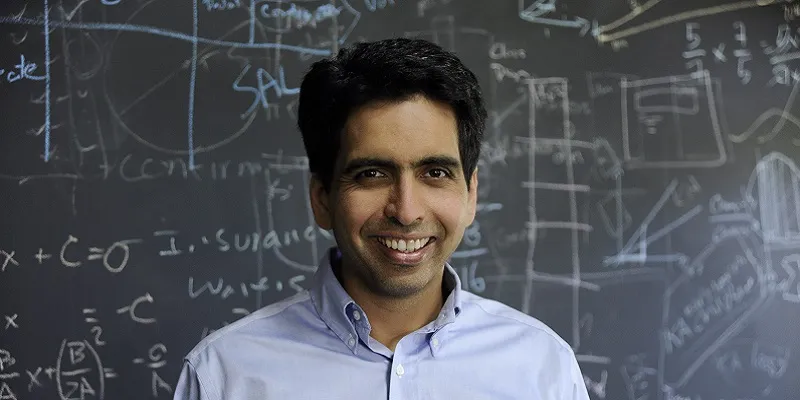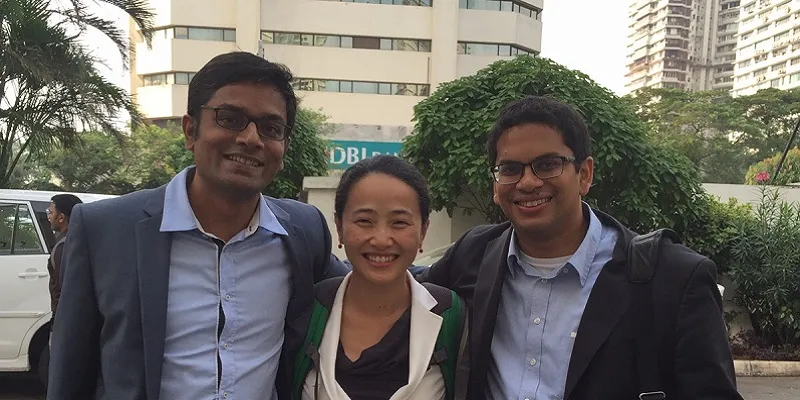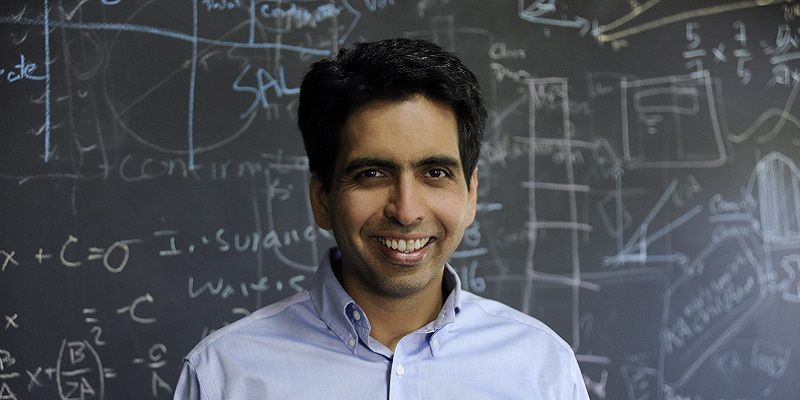How Khan Academy plans to crack the Rs 5.9 lakh cr Indian education market
While we were in school, we have all had subjects which we needed a little help with. For Salman Khan’s young cousin Nadia, it was mathematics. Since Nadia lived in New Orleans and Salman was in Boston working at a hedge fund, he began tutoring her remotely and would record videos and post them on YouTube. He began this in 2004.
Salman realised that making videos worked well, as his cousins could watch them whenever they needed to, at their own pace and even multiple times. He soon found that others users stumbled upon his videos, which gave him enough of a business case to set up the now-famous Khan Academy. From then, Salman continued making more videos.
Gaining popularity and support
In the next six years, over 2,000 tutorials were made, which were viewed over one lakh times around the world every day. In 2008, Khan Academy was incorporated as a non-profit, and until late 2009, Salman worked on the academy in his free time. Soon after, he quit his hedge fund job and focussed his complete attention on Khan Academy. Currently, the academy has over 90 full-time employees in Mountain View, California.
Apart from support from Bill and Melinda Gates Foundation, The Board Foundation, O’Sullivan Foundation, Google and Skool Foundation, the non-profit also partnered with Tata Trusts to create specialised, freely available online content tailor-made for India. Apart from hiring Indian teachers, the team will also be creating content in Indian languages based on the NCERT textbooks.

Sandeep Bapna, who earlier was a part of International Finance Corporation (IFC), World Bank and had even founded edutech platform Engrami, is now the India Country Manager at Khan Academy.

He says, The sheer scale and diversity of the Indian education landscape presents a significant challenge for any educator. The challenge for Khan Academy will be to deliver sufficiently versatile education resources that can be adapted to, and remain relevant to learners in these different environments. In particular, it will be challenging -- but still vital -- to reach under-served populations who may lack the awareness and have limited access to broadband networks and devices, among other issues.
On the India potential, the team says it observed that the country is currently the fifth largest user base for Khan Academy. Since 2012, the video views have grown at 45 percent year-on-year in India, and over 40 percent of the user base are from secondary school or college students. Khan Academy is building a team in India in three areas - content, growth/adoption, and partnerships and implementation.
Smritiparna De, one of the users, says, “It’s like having the best teacher for 24 hours in my room, teaching me whenever I want.” From videos on YouTube, the core of the team’s learning experience has grown to be a deep and interactive tutoring experience that uses machine learning to become a free, fun, personal tutor – available 24/7.
Scratching the surface of the Indian market
The academy has also evolved its education resources to over 7,000 instructional videos and more than 1.5 lakh practice exercises, covering subjects ranging from maths to sciences and computer science, and also including arts and humanities. It has also partnered with institutions such as NASA and the Museum of Metropolitan Art to deliver their content to learners.
Khan Academy currently has 31 million registered students, one million registered teachers, 15 million site visits per month, users across 190 countries, 580 million lessons delivered and over four billion completed problems. Currently, there are courses in Polish, English, Czech, Hindi, Malayalam, Chinese, Swahili, Russian, Indonesian, German, Spanish, Turkish, Xhosa, Urdu, Arabic, Bengali and many others. The team intends to add more Indian languages in the coming years.
The education market in India is believed to be worth Rs 5.9 trillion and the online education space is believed to touch $40 billion by 2017. With the growing Internet and mobile phone penetration happening in the country, there are several startups trying to make their presence felt in the education and tutoring space. Embibe, SimpliLearn, Vedantu, Edurekha and Xamcheck are some of the key players in the space.
However, Krishna Kumar, Founder and CEO, SimpliLearn told YourStory, “There are too many people trying to do the same thing. The possibility of bringing innovation becomes very limited.”
The regulated markets, such as the K-12 and higher education, are hard nuts to crack for education startups in India. Khan Academy's mission is to provide a world-class free education resource for anyone, anywhere.
We believe that we are at an inflection point in history, where technology has sufficiently advanced to fundamentally transform the learning experience and help both students and teachers. Together, we have a historic opportunity to deeply empower hundreds of millions of learners worldwide.











